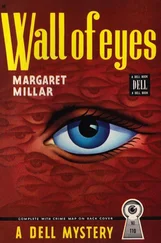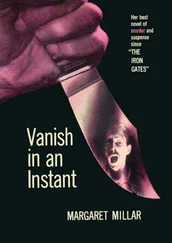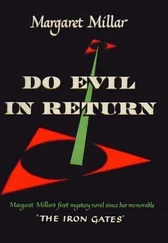“I was only trying to point out,” Owen added, “the serious nature of being a witness for the people.”
“I’m not a witness for the people. There were no people; there was just me and Harry.”
“Are you referring to the very early-morning hours, say, halfway between midnight and dawn?”
“Yes.”
“Were you in the engine room with your father?”
“Yes.”
“Tell us exactly what happened?”
“I thought the engine was making a funny little thumping sound every once in a while, so I called Harry in, and we were both listening for it. And Harry said, ‘Hey, did you hear that?’ And I said, ‘I didn’t hear any thumping sound,’ and he said no, he meant screams, a lady screaming. I said I didn’t hear nothing, and he said, ‘You crazy kids are all getting deaf from listening to such loud music.’ Then I heard it.”
“You heard a woman screaming?”
“Yes, I think so. I think I heard it.”
“Did your father say anything about going to investigate?”
“He wanted to go, but he was afraid Cully would be mad if he and the lady were, you know, just having, you know, fun or something like that.”
“What happened after that?”
“Harry said the engine sounded perfect to him, and he told me to hit the sack. So I did.”
“You went to sleep immediately?”
“Yes.”
“I have no more questions.”
Donnelly’s cross-examination was short, and he did not repeat Owen’s error in patronizing the boy.
“You told the court that you think you heard screams. Is that right?”
“Yes.”
“Did you hear them prior to your father calling your attention to them?”
“No.”
“Are you a little deaf, Richie?”
“No.”
“Do you listen to loud music?”
“Sure, like everybody else. Only it didn’t make me deaf.”
“Is it possible, Richie, that you told your father you heard the screams in order to convince him you were not deaf from listening to loud music?”
Owen rose to object, but before the judge could rule on it, Donnelly said he would withdraw the question.
“While you were listening to the engine, did your father bring another noise to your attention and ask if you heard it?”
“Yes.”
“What was your response?”
“At first I said no, and he said all us kids were crazy to let ourselves get deaf from listening to rock music.”
“Did you resent this?”
“It wasn’t true.”
“Did you want to prove to your father that it wasn’t true?”
“He’s always on my back about it.”
“Is that why you agreed with him, to get him off your back about the deafness issue?”
For a full minute Richie sat mute, his eyes fixed on Cully again with a mixture of bewilderment and appeal. Donnelly had the impression that the boy’s answer would depend on Cully’s reaction. There was none, no recognition, no acknowledgment, no attempt to influence the testimony.
“Did you hear the question, Richie?”
“Yes.”
“And what is your answer?”
“I heard the lady screaming,” Richie said.
“You weren’t sure of that before. Why are you sure now?”
“I don’t know. I just am. The lady was screaming.”
“If a man says one thing one minute and another the next minute, is it fair to assume he simply doesn’t know? You have said, ‘I think so.’ You have said, ‘I don’t know.’ You have said, ‘Maybe.’ Now you say you’re sure. Doesn’t that mean you’re sure for right this minute, not necessarily next minute?”
Owen got to his feet. “Counsel is harassing the witness.”
“Witness is harassing counsel,” Donnelly said wryly. “I have no more questions.”
At lunch time Judge Hazeltine drove down to the waterfront. He parked the old car along the curb of the boulevard to avoid the fifty-cent-an-hour fee charged for parking in one of the lots closer to the marina. This was a matter of principle, not thrift. He considered the fee discriminatory as well as economically unsound. The revenue which was supposed to have been used for harbor improvements had simply vanished into thin air and water thick with oil and debris, the sea’s flotsam and the seamen’s jetsam.
The judge took off his coat and tie and rolled up his sleeves. He put on a pair of tar-stained sneakers and a Giants’ baseball cap and clipped sunshades on top of his regular glasses. He transferred his lunch, consisting of a bologna sandwich and a hard boiled egg, from the glove compartment of his car to a side pocket of his trousers, the egg especially making an interesting bulge in his silhouette.
Thus disguised, he started walking toward the breakwater, past the yacht club, where he recognized a bail bondsman and an attorney having drinks on the terrace. He passed the row of concrete benches along the seawall where a varied group of people were eating their sandwiches and hamburgers and fish-and-chips.
The tide was receding, leaving the walkway wet and slippery. At the end of the breakwater he sat on one of the huge boulders that formed the base of the lighthouse marking the entrance to the harbor. The foghorn was silent. The revolving warning light was turned on but scarcely visible in the bright sun. It was a typical autumn day, clear and crisp, cool in the shade, warm in the sun.
An old man fishing from the adjoining rock eyed the judge’s baseball cap with disapproval. “Know what I’d do if I was managing the Giants? I’d turn them all into hot dog vendors.”
“An unusual suggestion.”
“Should of been done before. Ten chances to one they’d have botched that, too, probably couldn’t even put a wienie in a roll without dropping it.”
The old man spoke with the bitterness of a disappointed lover. The judge, figuring there wasn’t much to say to a disappointed lover, peeled his hard-boiled egg and ate it with the bologna from inside the sandwich. The bread he fed to the gulls, throwing small pieces into the air. Each piece was caught with speed and grace, only serving to deepen the old man’s gloom.
“Them Giants oughta come out here and take lessons.”
“A good deal depends on the throw, don’t you think? I have,” he added modestly, “rather a decent throwing arm.”
“Nah. They can catch anything.”
“They can’t hit.”
“Probably could if they had a way of holding a bat.”
The judge leaned back against the rock and thought about this. It was a pleasant fantasy, the gulls holding tiny bats under their wings and the air filled with one continual baseball game.
Refreshed by food and fantasy, he started the trip back to his car. He was in the act of unlocking the trunk when his attention was drawn to a woman approaching him from the fifty-cent-an hour parking lot. He didn’t recognize her until she was a few yards away.
In the courtroom she took on some of its regal atmosphere, and her manner intimidated deputies, attorneys and even the judge himself on occasion. Here, against this busy background of Monterey seiners and Boston whalers, of joggers and skateboarders and bicyclists, she looked out of place, almost unreal.
“I followed you,” Eva said.
“Dear me.” The judge looked somewhat baffled. “What on earth for?”
“To talk to you.”
“You’re perfectly free to come to my chambers anytime and discuss court procedures.”
“This isn’t a court procedure. It’s me, my procedures.”
“I notice you’ve been acting a bit odd lately. I thought perhaps it was the full moon.”
“You don’t really believe in that full moon stuff, do you?”
“There’s a full moon once a month. I pretty well have to believe in it.”
“I meant, all those stories about animals getting restless and people behaving irrationally.”
Читать дальше
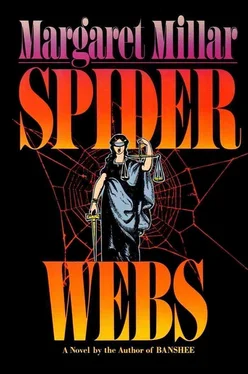

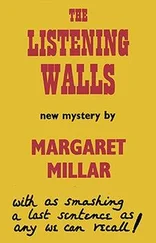

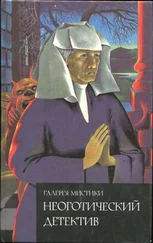
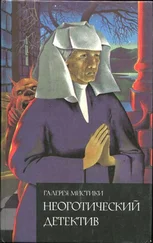

![Маргарет Миллар - Rose's Last Summer [= The Lively Corpse]](/books/384369/margaret-millar-rose-s-last-summer-the-lively-c-thumb.webp)
